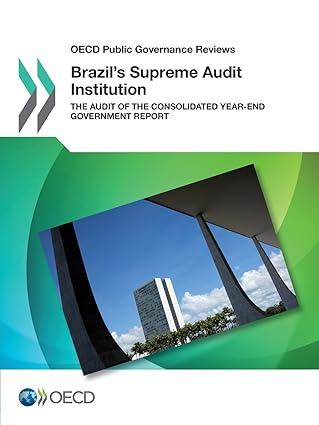Answered step by step
Verified Expert Solution
Question
1 Approved Answer
Relevant information for your DCF valuations: Company XYZs current EBIT = 1,964 Company XYZs current interest expense = 651 Company XYZs current capital spending of
Relevant information for your DCF valuations:
- Company XYZs current EBIT = 1,964
- Company XYZs current interest expense = 651
- Company XYZs current capital spending of 147
- Company XYZs current depreciation and amortization of 28
- Company XYZs effective tax rate = 27.50%
- Company XYZs marginal tax rate = 27.50%
Company XYZs Current Year:
- Inventories = 12
- Accounts Receivable = 180
- Accounts Payable = 4
- Book Value of Debt = 2,673
- Book Value of Equity = 11,597
- Cash and Marketable Securities Value = 4,697
- Non-Cash Operating Assets Value = 10,444
Company XYZs Previous Year-End:
- Inventories = 25
- Accounts Receivable = 59
- Accounts Payable = 1
- Book Value of Debt = 2,668
- Book Value of Equity = 11,393
- Cash and Marketable Securities Value = 4,226
- Non-Operating Assets Value = 10,498
Other Relevant Information:
- Company XYZ is currently being traded on NYSE
- Company XYZ most recent stock price = $49.74 per share
- $1.00 USD is now worth $1.34 CAD
- Company XYZ currently has 768 million common shares outstanding.
- Company XYZ has some preferred shares outstanding and its aggregate market value is calculated to be 2,600.
- Company XYZ has no convertible debts outstanding at the moment.
More Relevant Information:
- The current nominal 10 year Treasury bond Quarterly Yield to Maturity (YTM) = 0.5975%.
- You decide to use the annual percentage rate instead of the annual effective rate.
- Canada current inflation rate = 1.43%
- You believe in nominal risk free rate rather than the Fisher Effect.
- Based on Company XYZs interest rate coverage ratio and your analysis on the rating of Company XYZ notes, Company XYZs default spread = 1.88%
- The Canadian and United States Equity Risk Premium are the same and equals to 5.04%
- China current country default spread = 0.77%
- The standard deviation in the SSE Composite Index = 33.76%
- The standard deviation in Chinese government bond = 31.00%
- Company XYZ gets 46.86% of its revenue in the United States
- Company XYZ gets 24.43% of its revenue in Canada
- Company XYZ gets the rest of its revenue from China (28.71%)
- You fail to acquire the percentage revenue the avg Canadian firm gets in Canada.
- You went through votes and 4 out of 6 are supporting the operation based beta exposure approach for the cost of equity.
- Your estimated value of the unlevered beta is 0.76 for the current year.
- You estimated the current ROC to increase about 16.00% next year based on the trend analysis from the last 5 years.
- You decide to use a three stage DCF model and a high growth period of 5 years for Company XYZ.
- The growth rate will remain its value during the Y1 of the high growth period and gradually transit to the growth rate in the stable growth period during the following years in the high growth period.
- In the stable growth period, you estimated the ROC to be 2% higher than the wacc in the stable growth period.
- The growth rate in the stable period is set to be 1% higher than the current long term risk free rate, and you need to compute the wacc in the stable growth period.
- You consider 3 aspects when calculating the wacc:
- Make the beta set to 1
- Take the avg of the debt to equity ratio of your firm and the industry average debt to equity ratio which is 0.36 for the game industry here, use the avg of these two ratios as your debt ratios in the stable growth period
- Consider the emerging market country risk premium shrink to half of its current size in the stable growth period
- You assume the growth rate and the cost of capital to gradually change to the stable growth rate and stable cost of capital, in a straight line fashion.
- When calculating market value of debt, the pretax cost of debt is assumed to be fixed across the years.
- You decided to ignore the short-term debt, and you estimated that the firm has a 5 year average maturity of debt.
- There is no adjustment on the market value of equity.
- Lastly, you decided to capitalize the R&D expenses and convert the operating lease expenses to debt.
- Current R&D expense = 1,148.
- You estimated a 3 year amortizable life for the R&D and the R&D expenses one year ago to 3 years ago are 1,104, 1,009, and 677 respectively.
- You assumed that R&D expenses are spent at the end of each year.
- The current operating lease expense is 40.
- You estimated a 6 year life for the operating lease assets and the future commitments from year one to year six are 57, 68, 52, 47, 39, and 61 respectively
- You will use a straight line depreciation method for both R&D and operating lease expenses.
Questions:
- Find the current year FCFF for Company XYZ?
- Find the current year weighted average cost of capital for Company XYZ?
- Find the terminal value at the end of the high growth period?
- Find the firm value now according to your fundamental analysis?
- Is Company XYZ overvalued or undervalued. If so, by how much in percentage?
Step by Step Solution
There are 3 Steps involved in it
Step: 1

Get Instant Access to Expert-Tailored Solutions
See step-by-step solutions with expert insights and AI powered tools for academic success
Step: 2

Step: 3

Ace Your Homework with AI
Get the answers you need in no time with our AI-driven, step-by-step assistance
Get Started


